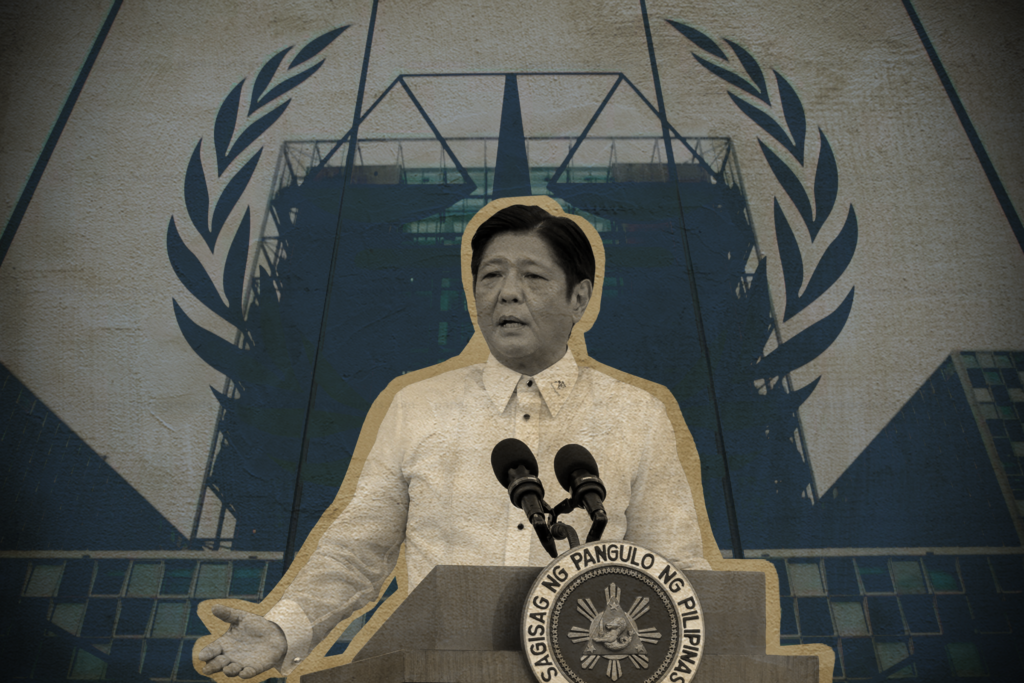Media break down the ICC decision, explore the issues

ON JULY 18, the International Criminal Court (ICC) appeals chamber dismissed the government’s effort to stop the court’s investigation into the killings that took place in former President Rodrigo Duterte’s “drug war” and those perpetrated by the alleged Davao Death Squad. As with many things regarding the ICC, the ruling may be technical and complex but some members of the news media showed they were up to the task of explaining it, of breaking down the complexities.
What’s the Story?
Presiding Judge Marc Perrin de Brichambaut said the decision by a majority, 3-2, rejected the Philippine government’s appeal. This authorizes ICC prosecutor Karim Khan to resume his investigation and to gather more evidence into the killings under Duterte’s terms as mayor and president. Khan could also now issue summons and warrants against individuals who will be implicated in the case.
All of the media reported on the highly anticipated decision that was livestreamed starting 4 PM Manila time that day. But not all newsrooms covered it with the same prominence. GMA-7’s 24 Oras reported on the decision at the end of its newscast. The print broadsheets Daily Tribune, Manila Standard, and Manila Bulletin didn’t run it as the banner story, as the other newspapers did.
What the Reports Got Right
The coverage cited as sources the families of victims, human rights groups, lawyers, senators, and officials from government agencies. But some stood out for their consistent reporting and for providing timelines, analyses, and context. Reports also tried to answer the question many Filipinos, particularly victims, had: What’s next?
Rappler, One News’ The Big Story, and ABS-CBN’s TV Patrol provided the needed timeline as context.
Rappler explained that the ruling is a “technical one” that also provided the Philippine government options to challenge, particularly on the issue of jurisdiction. It explained that the ruling does not “categorically declare” whether the Philippine government’s position – that the ICC no longer has jurisdiction – because “it is not a decision on jurisdiction.” Coupled with the minority opinion that affirmed the government’s assertion, this could be an opening that the government might exploit in its challenge to the ICC investigation.
CNN Philippines explained the divisions of the ICC and their respective roles in the process.
Some media outlets interviewed lawyers for the families of victims, analysts, and human rights groups, thus providing more context and information. Through these interviews, legal terms, processes, and the next steps were thoroughly discussed.
Lawyer Ruben Carranza, a senior expert at the New York-based International Center for Transitional Justice, explained on ANC’s Headstart that the issuance of arrest warrants or summons can now take place. VERA Files on July 17 found that Vice President Sara Duterte and senators Bong Go and Bato dela Rosa had been named in ICC’s probe documents.
Human Rights Watch, on ANC’s Headstart and CNN Philippines’ The Final Word, welcomed the ICC ruling and challenged the Marcos government to “back up its stated commitment to human rights” by following through on its international legal obligation. Political analyst Richard Heydarian offered theories about the implications of the ICC decision, including how the Marcos administration would deal with it. It could, he said on The Big Story, lead to not only the “dissolution of the uniteam” but also the “transformation of the Dutertes as a main opposition group against Marcos.”
Why Is This Important?
The workings of international institutions such as the ICC are challenge to report. In the context of the Philippines, these accountability mechanisms have a key role to play. It is, therefore, important for the news media to tackle the issues surrounding these institutions as extensively as possible so that public, especially the victims of human rights abuses, can easily follow developments and decide better on their courses of action. Admittedly, the news media have limitations in terms of resources. But this development presents a compelling argument to develop the capacity of reporters for specialized coverage as well as to improve the newsrooms’ reporting of justice and accountability issues.
Families of victims understand that attaining justice is long and arduous. Media’s dedicated and skillful reporting of the process will help engage more Filipinos to understand and appreciate the enormous significance of this issue to the country as whole. This solidarity will ease the struggle and quest for justice.
Leave a Reply